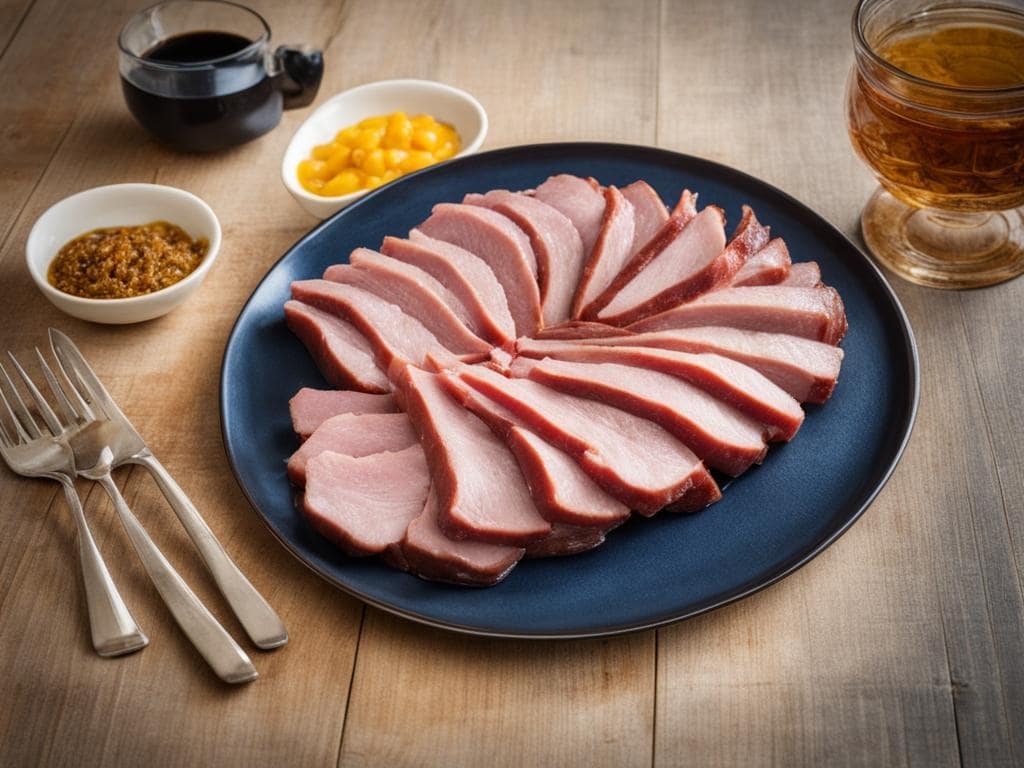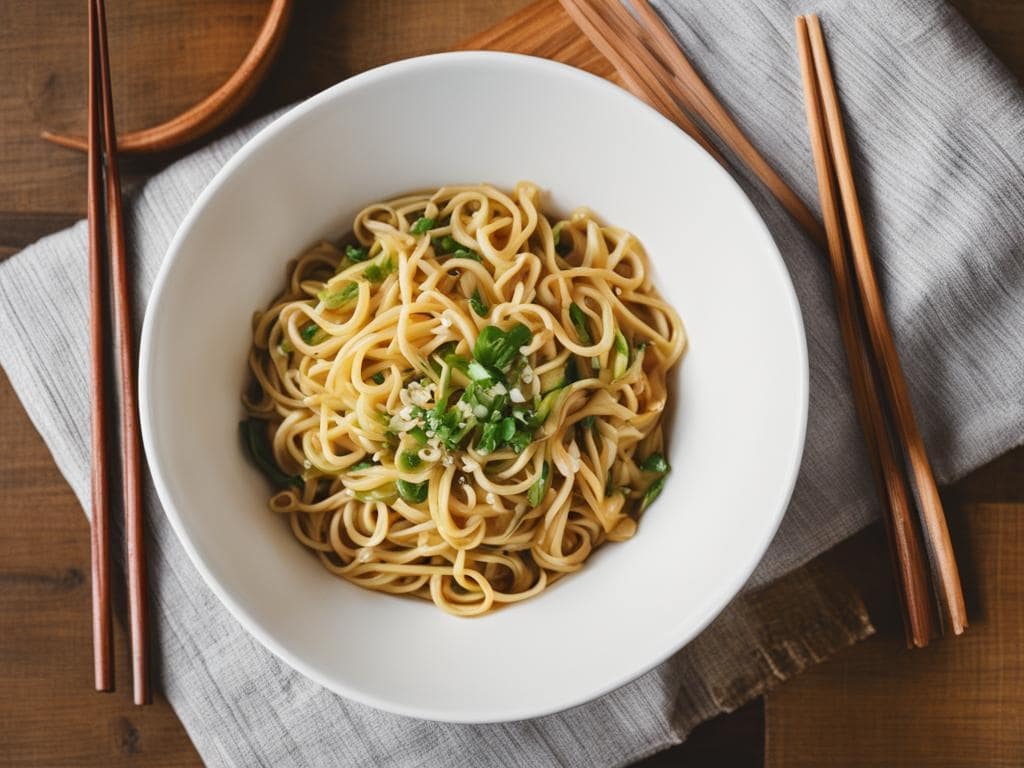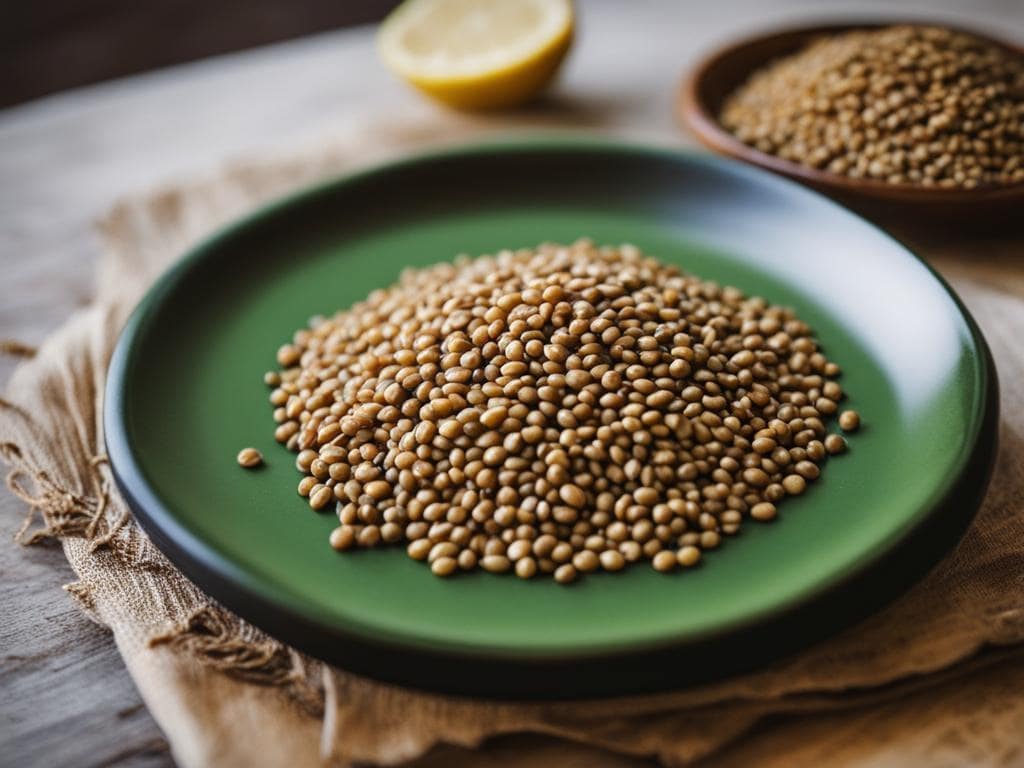Did you know there’s actually some interesting history behind the foods we eat on New Year’s Eve? Apparently, there are some old superstitions about why we choose certain dishes to enjoy as the ball drops.
Even if you’re not really into the superstitious stuff, I think it’s interesting how these little traditions give New Year’s that extra something special. And if superstitions are your thing, being aware of them could help the new year treat you well! Who doesn’t want 2024 to be a good one?
Circular-Shaped Foods For Prosperity

Ring in the new year with round foods like grapes, oranges, and doughnuts. Their circular shape symbolizes the cycle of life and good fortune in the year to come.
Doughnuts or bagels are perfect for breakfast on New Year’s Day. Their round shape signifies continuity, and their sweetness means a sweet year ahead. If you’ve got more of a sweet tooth than a savory one in the morning, go for some round fruits, too.
Apples and oranges would be my top picks. Their roundness has the same continuity meaning but they’re also full of natural sweetness. Or you could pick up some sweet pastries, cookies, or candies, too. Anything with that round shape and sweet flavor fit the symbolism of the day.
Eating Grapes At Midnight

Eating 12 grapes at midnight on New Year’s Eve is a popular Spanish tradition (also known as “las doce uvas de la suerte“) believed to bring good luck in the coming year.
As the clock strikes 12, pop one grape in your mouth for each chime. If you finish all 12 before the last bell, legend says you’ll have prosperity and good fortune in the new year.
But why grapes? The round shape of grapes symbolizes coins, so eating them is thought to bring economic success. Their sweetness represents a sweet new year. And since grapes were an expensive fruit when the tradition began, being able to afford 12 grapes was a sign of wealth – which people hoped would continue into the next year!
This quirky custom has spread from Spain to many parts of the world. Give it a go this year – you’ve got nothing to lose but 12 grapes! At the very least, it’s a fun excuse to gather with friends and count down to a fresh start.
Fish For Abundance

In many cultures, fish is considered a lucky food to eat on New Year’s. The Chinese word for “fish” sounds like the word for “surplus.” So, eating fish is thought to bring an abundance of everything good in the new year.
Some other fish superstitions for prosperity and abundance:
- Eating a whole fish, from head to tail, represents having more than enough from the beginning to the end of the year.
- Fish served with the head and tail still attached signifies a good beginning and ending in the year to come.
- The word for dried fish in Chinese is a homophone for “having hidden wealth.” So, dried or preserved fish is believed to attract hidden riches and windfalls.
Avoiding Chicken or Turkey

Avoid eating chicken, turkey, or any poultry on New Year’s Day. According to folklore, these birds scratch backward, so eating them could cause your good luck and fortune to scratch away from you in the new year.
While this may seem like an odd or silly superstition, many believe it’s better to be safe than sorry. So skip the chicken wings or turkey sandwiches on January 1st. Instead, consider eating pork, fish, or vegetables.
Pork is thought to symbolize progress since pigs root forward. Fish are also believed to swim forward, so eating fish on New Year’s Day could help your life and luck move in a positive direction in the coming year. And, of course, you can never go wrong with fresh veggies – they’re healthy, and delicious, and avoid the whole directional dilemma altogether.
Noodles For Longevity

Eating long noodles is said to promote longevity and long life. The length of the noodles symbolizes the length of life. So dig in and indulge in a big bowl of long noodles to secure good health and vitality in the year ahead!
Some popular noodles that are traditionally eaten on New Year’s Day include:
- Udon noodles – Thick wheat noodles in broth. The thickness signifies strength and resilience.
- Soba noodles – Buckwheat noodles in broth. Buckwheat is high in rutin, which is good for circulation.
- Ramen noodles – Wheat noodles in broth topped with meat and vegetables. The many toppings represent abundance.
- Longevity noodles – Extra long egg noodles, usually stir-fried. The longer, the better!
Lentils For Money

In the Czech Republic, lentils (“čočka” in Czech) are eaten on New Year’s Eve to symbolize money and abundance in the coming year.
The small, lens-shaped lentils resemble coins, so eating them is thought to attract wealth and prosperity. Cook the lentils in water until tender, then drain and season them with vinegar, salt, and pepper. Some also like to add diced onions or bacon for extra flavor.
Serve the lentils as a side dish with pork, the traditional Czech New Year’s meal. The pork signifies progress and moving forward in the new year. With a spoonful of lentils and a bite of pork at the stroke of midnight, you’ll be starting the year off right and bringing yourself good fortune.
This simple but meaningful tradition is an easy one to adopt. Whip up a pot of lentils to share with friends and family as you ring in the new year. Who couldn’t use a little extra money and abundance?
Happy New Year!
Whether or not you actually believe that lentils will bring you wealth or grapes ensure prosperity, following some of these traditions can make the holiday feel more meaningful. And at the very least, the foods themselves are delicious! Happy New Year! May good fortune find you in the year to come.








